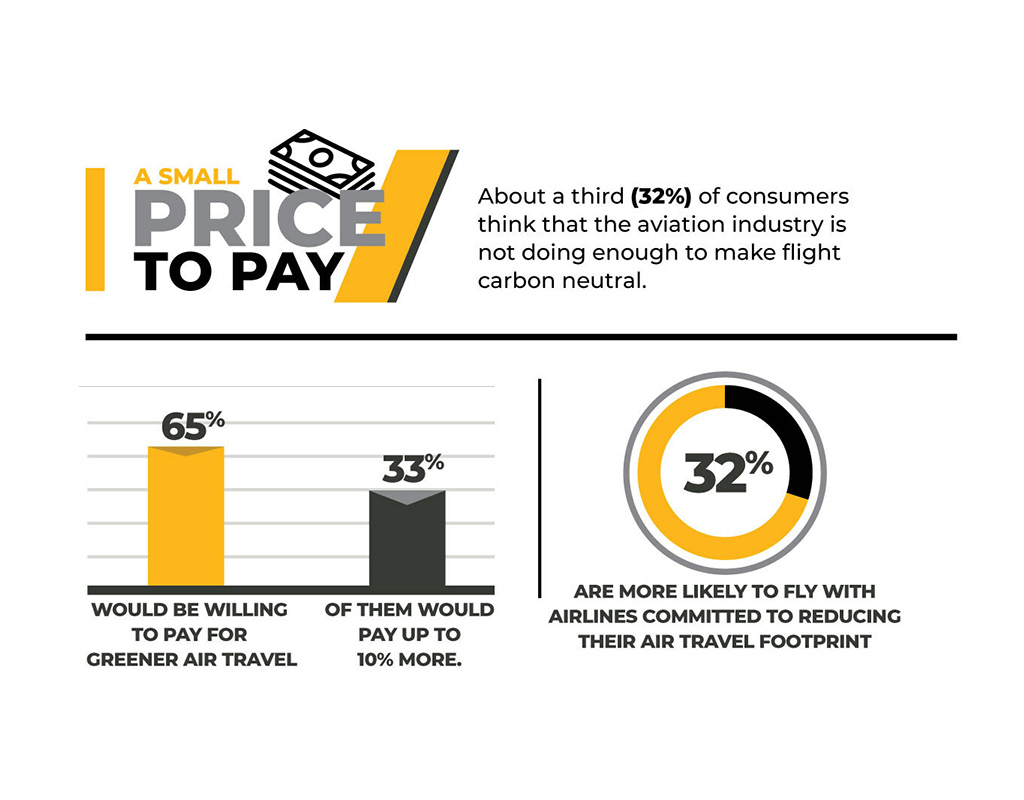
More than 60% of consumers are worried about carbon dioxide (CO2) emitted from aircraft and would pay more for greener air travel, according to a comprehensive consumer survey commissioned by Ansys.
An online survey was conducted by Atomik Research among 6,029 respondents from the United States, the United Kingdom, France, and Germany. Research fieldwork took place between 8–15 March. Atomik Research is an independent creative market research agency that employs researchers certified by the Market Research Society (MRS) and abides by the MRS code.
Released at last week’s Paris Air Show, Ansys’ Sustainable Aviation Survey also explores consumers’ concerns with aviation-related air pollution as well as their expectations for next-generation air travel.
As global aviation leaders and organisations aim to reach net-zero carbon emissions by 2050, aircraft manufacturers are embracing Ansys’ leading-edge digital transformation technologies to develop more efficient aircraft, engines, and propulsion systems.
Of consumers polled in Ansys’ survey, nearly 70% said they would be more likely to trust alternative fuel sources like sustainable aviation fuel (SAF), electric, hybrid-electric, or hydrogen-power if the technology was extensively simulated and tested using established methods applied to aircraft safety.
Additional highlights of the survey include sustainability, with a majority of consumers concerned about CO2 emissions (63%) and would pay for greener air travel (65%) 46% would travel in an aircraft powered by sustainable aviation fuel (SAF) in the next 5 years, 36% in electric, 38% in hybrid-electric, and 38% in hydrogen-powered aircraft.
About a third of consumers (32%) are more likely to fly with airlines committed to reducing their carbon footprint. Most respondents (82%) would be comfortable flying in next-generation aircraft at speeds of 3,500 mph versus standard aircraft that flies at 560 mph to get to their destinations faster, as 50% of respondents reported that they have not travelled somewhere in the past due to a long flight.
More than half of consumers (57%) expect to fly in an electric vertical take-off and landing (eVTOL) aircraft at some point in their lives, citing potential benefits for daily commuting, including a reduction in stress (27%), road rage (26%), and carbon footprints (35%). Almost half (47%) of consumers polled are prepared to fly in an autonomous plane in their lifetimes.
Despite anticipation to take an autonomous flight, the top concern for 57% of consumers is the absence of a pilot to respond to potential external or internal issues such as turbulence and flight control, respectively. For alternative aircraft such as SAF-powered planes, half of customers worry that technology is not proven yet and almost 40% fear a technology failure.
“Consumer research is essential as the aviation industry transforms to meet the demands of consumers and needs of our planet,” said Walt Hearn, senior vice president of worldwide sales and customer excellence at Ansys.

